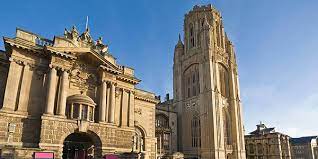The University of Bristol has been named as one of the world’s most sustainable universities in recognition of its globally acclaimed environmental research as well as its action in tackling the climate crisis.
The university, which has 31,500 students and employs just over 8,000 staff, was ranked 17th in the global league table. It was also named as the fourth most sustainable in the UK and seventh in Europe.
Some 1,403 universities worldwide were surveyed for the QS University Rankings: Sustainability 2024.
The research analysed the different ways in which universities are taking action to “tackle the world’s greatest Environmental, Social and Governance (ESG) issues”.
The university’s Cabot Institute for the Environment is recognised across the globe for its environmental research and teaching.
Its experts – a number of whom are currently taking part in the COP28 summit in Dubai – provide knowledge, evidence, education and solutions that protect the environment and identify better ways to live within a changing planet.
The university highlighted its other recent environmental successes as including:
- A 100kW increase in solar capacity, taking its total solar capacity to 500kW
- Its biggest ever increase in electric vehicles. It is now halfway to its aim of an all-electric fleet by 2025-26
- New building energy management systems that finetune indoor climate to eliminate energy waste
- Replacing old heating systems with high efficiency boilers.
The QS rankings also assessed the universities’ social impact, including their commitment to equality and how “they partner in research between developed and developing regions to share knowledge and spur educational growth”.
Last week, the University Of Bristol announced a £10m programme to tackle racial inequality. It will build on existing work on anti-racism, including outreach in schools, mentorship, access courses and several scholarships, such as the Black Bristol Scholarship Programme.
Staff receive diversity training, with the university recently achieving a Silver Athena Swan Charter accreditation for its excellence in gender equality.
Meanwhile, its Perivoli Africa Research Centre champions transformation in research collaborations with Africa.
University of Bristol pro vice-chancellor for global engagement Prof Agnes Nairn said: “We are immensely proud to be recognised as one of the most sustainable universities globally – an achievement that is testament to the hard work of our staff, students and alumni over many years. Thank you to everyone who has made this possible.
“There is still much to be done, and we look forward to building on our world-leading research, making our campus ever more sustainable and continuing to champion diversity in our student and staff bodies.”
Last year student campaign group People & Planet gave the university a ‘1st class grade’ in a league table ranking 153 universities on their environmental and ethical performance.






























